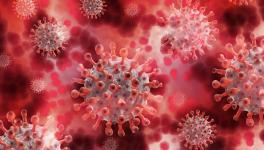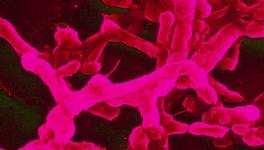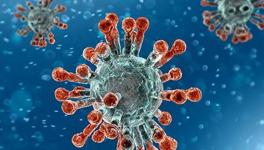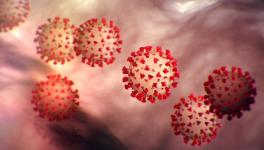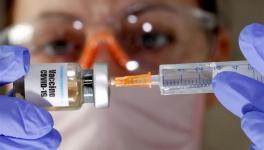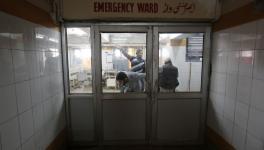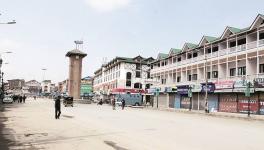Top Medical Journals Retract Research Papers on COVID-19 After Controversy Over Data
The Lancet and the New England Journal of Medicine (NEJM), the two prestigious medical journals have retracted research papers on COVID-19. The decision by the journals came after questions were widely raised about the data provided in the papers and the conclusions based on that data.
All of the data in the papers were provided by a US-based company named Surgisphere. The papers had a significant influence on the global endeavors seeking treatment of COVID-19. The World Health Organisation (WHO) had even declared withdrawal of chloroquine and hydroxychloroquine from its list of global drug trials for COVID-19 treatment.
So, what were the papers all about and what was the controversy? The Lancet paper, based on Surgisphere’s data, concluded that antimalarial drugs chloroquine and hydroxychloroquine cause serious harm to the COVID-19 patients, without helping them. Sapan Desai, the CEO of the company, was also one of the co-authors of the Lancet paper. After questions were raised about the integrity of the data, Lancet launched an independent third party peer review of the Surgisphere data. But, Surgisphere refused to provide data for the independent audit.
In the retraction announcement Lancet wrote about the failure of this process. The announcement further says: “We always aspire to perform our research in accordance with the highest ethical and professional guidelines. We can never forget the responsibility we have as researchers to scrupulously ensure that we rely on data sources that adhere to our high standards. Based on this development, we can no longer vouch for the veracity of the primary data sources. Due to this unfortunate development, the authors request that the paper be retracted.
We all entered this collaboration to contribute in good faith and at a time of great need during the COVID-19 pandemic. We deeply apologise to you, the editors, and the journal readership for any embarrassment or inconvenience that this may have caused.”
The NEJM paper was also based on data provided by Surgisphere and concluded that some blood pressure drugs, like angiotensin-converting enzyme (ACE) inhibitors, did not increase the risk of death of the COVID-19 patients. “Because all the authors were not granted access to the raw data and the raw data could not be made available to a third-party auditor, we are unable to validate the primary data sources underlying our article,” says NEJM in their retraction announcement.
Interestingly, Desai, CEO of Surgisphere, has refused to share the raw data even though he has been the co-author for both the research papers.
For the Lancet paper, a well-known cardiac surgeon of US, Prof Mandeep Mehra, who was the lead author, himself asked the journal to retract their paper because he could not confirm the integrity of the data provided by Surgisphere. In a personal statement, Mehra sought apology to the scientific community for the disruption that has been created.
The Lancet study claimed that analyses were made based on the data of 96,000 COVID-19 patients from 671 hospitals around the world who received hydroxychloroquine, alone or in combination with antibiotics. These hospitals were said to be among the 1,200 hospitals in the database of Surgisphere.
The erroneous data was first reported in an investigation by The Guardian. The data suggested that in five Australian hospitals, among 600 patients with COVID-19, 73 died as of April 21. But in reality, 67 deaths were reported in Australia till the said date. Unlike what was claimed by Surgisphere data, the number of deaths rose to 73 only by April 23. Desai told The Guardian that one Asian hospital was mistakenly included in the Australian data, which was responsible for the rise in estimation of deaths.
The Guardian reported that it has contacted five Australian hospitals ever since the discrepancies surfaced and all of them denied any communication with the company. In fact, they said that the Surgisphere was “unheard of”. Importantly, these five hospitals were essential for anyone to gain access to the Australian patients.
Surgisphere was established by Desai in 2008 and it was a medical education company that publishes textbooks. According to The Guardian, Desai said that his company employs only 11 people. The report further investigates the details of these 11 employees and shockingly, finds that they joined Surgisphere only two months back. More importantly, many of them did not even have a scientific or statistical background, essentials for conducting such a study. Most of them have expertise in strategy, leadership and copy writing.
Further investigations into Surgisphere has revealed that Desai was named in three cases of medical malpractices in the US, and two out of the three were filed in November 2019. Desai was even reported to have conducted a crowdfunding back in 2008 promoting a device named “next generation human augmentation device”. Desai claimed that the device can help one to achieve what they would never think of as possible. The crowdfunding raised some hundred dollars, but the “device” never became a reality.
Get the latest reports & analysis with people's perspective on Protests, movements & deep analytical videos, discussions of the current affairs in your Telegram app. Subscribe to NewsClick's Telegram channel & get Real-Time updates on stories, as they get published on our website.









